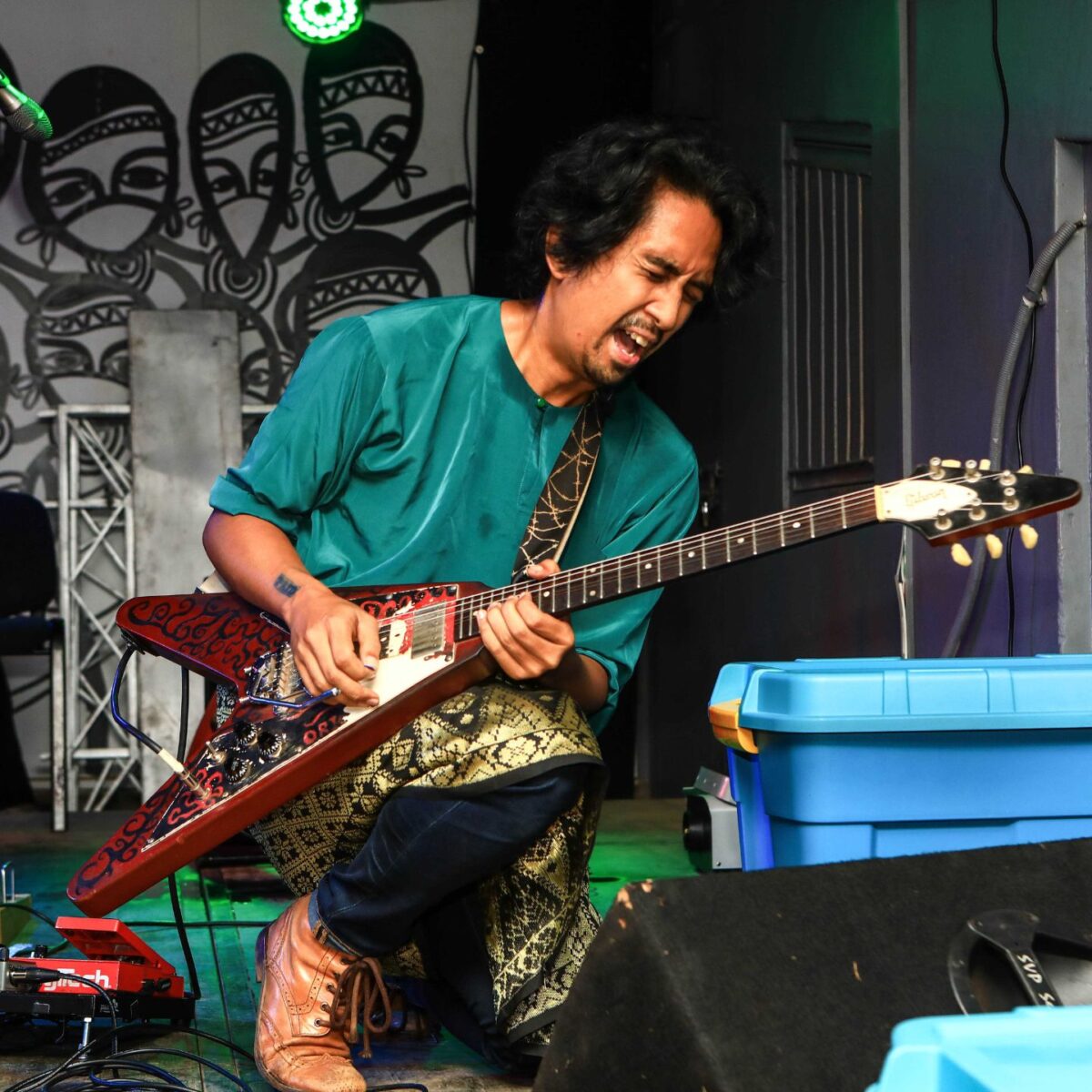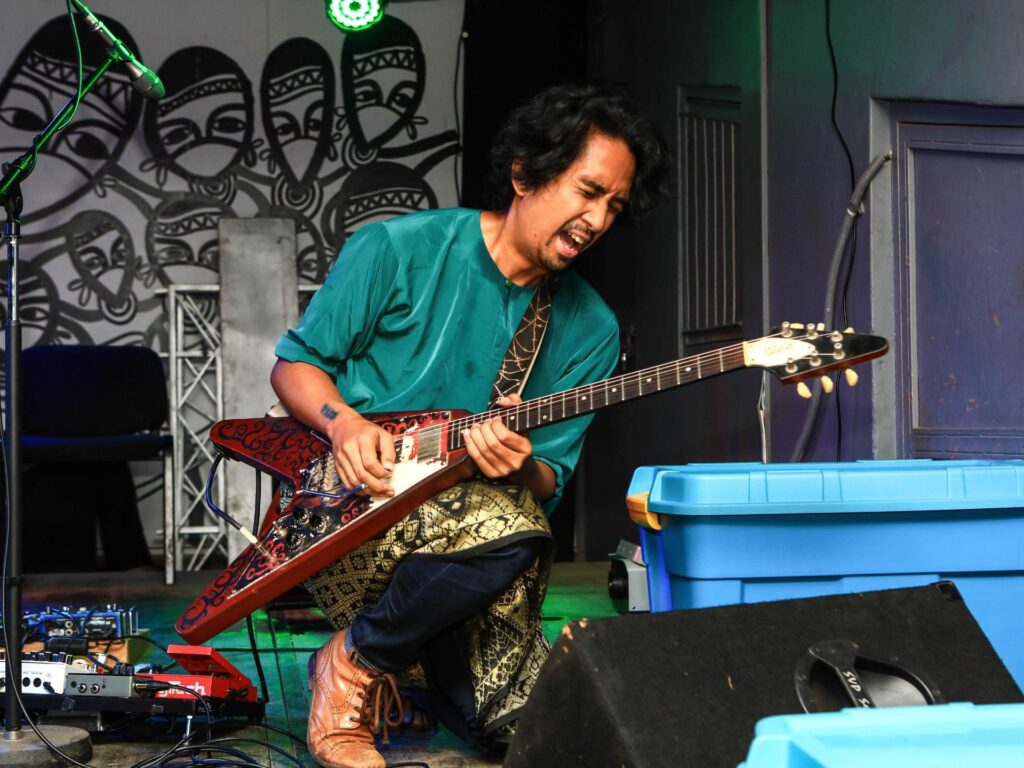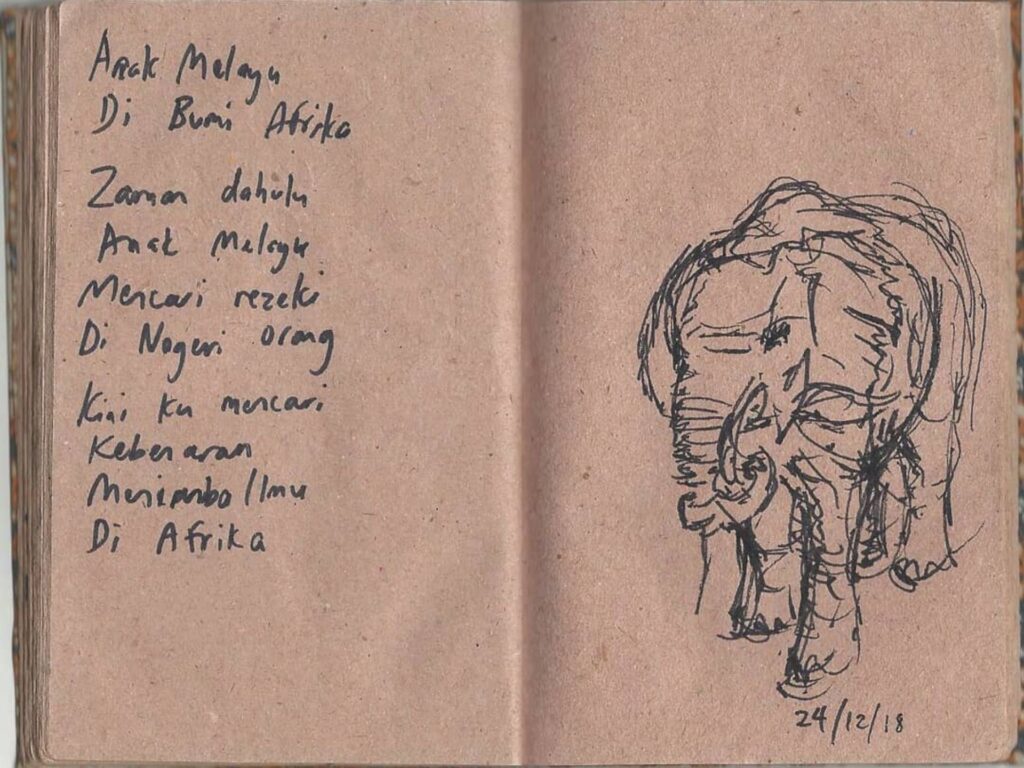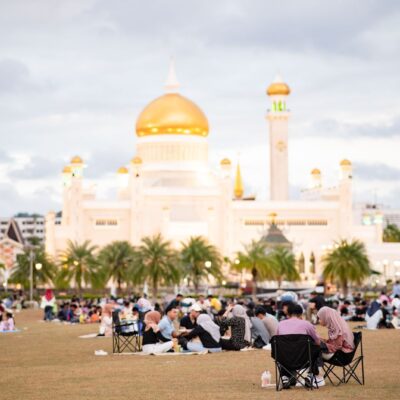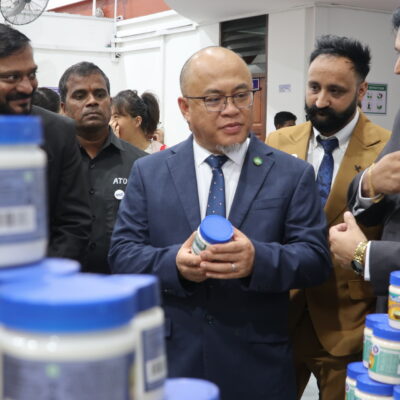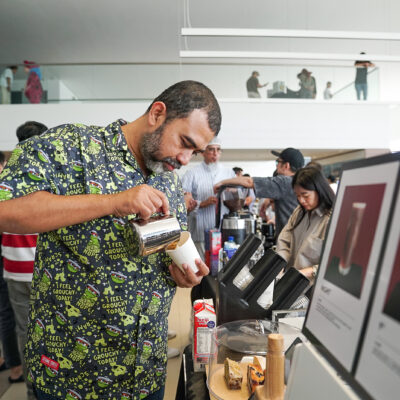by Jia Ying Chia
He needs no introduction when it comes to the Bruneian music scene; a veteran musician with a background in art education, Alif has over two decades of experience behind him. The frontman of local rock group Eda Brig is now based in Kampala, Uganda, and has performed a multitude of shows in Tanzania and Uganda — most notably at the Zanzibar Water Sports Festival with Swahili bluesman, Leo Mkanyia, and at the Reggae on The Nile Festival with Jhikoman. His music is a fusion of African and Nusantara music with roots in rock and blues. In 2020, he released a single titled ‘Borrowed Time’ featuring fames Tanzanian musician, Msafiri Zawose, and a slew of bop-worthy music since. We caught up with the legend on life and music in Africa and his upcoming EP, ‘Eh Banange’, slated for release on all platforms on July 29th 2023.
Q:You’ve been busy since moving to Africa, can you tell us a bit about how you got there and what you’ve been up to?
AA: I’d gotten a job offer but also wanted to move because I wanted to get more into my music, and I’ve heard good things about music coming out of Africa. It was a once in a lifetime opportunity to visit and be here. I was in Tanzania for three years — didn’t write much music at the time but I was trying to perform as much as I could. it was only at the end of that time that I could write come music for myself, rather than for others. Marjorie, my wife, was offered a job in Uganda so that’s why we moved. It was a good thing because Uganda — Kampala in particular — is vibrante for the arts and music scene even more than where we were before. One good thing that happened out of that and COVID, was that I was really able to focus on writing and recording music.
I had the good fortune of meeting a gentleman called David Cecil, who was the end of this music distribution company called East African Records that has a good network across Africa and Europe. I signed a five-year distribution deal with them and we also have a good working relationship — if there are any opportunities to perform or if they know someone who I could work with then they can link me up. It was hard (back home) because you know, as much as people in Brunei love music, unfortunately it’s a small market and there’s only so much you can do if you want to start growing and reach a bigger audience, do shows.
Q: You’re also known for wearing the sinjang onstage. How did it come about and what does it mean to you?
AA: That’s more of a recent thing in Uganda; I have this thing where i also sing in Malay. So Malay language and culture will always be a part of who I am, and I figured that it’s just not enough to sing in Malay bit also show aspects of Malay-Bruneian culture. I was really inspired by what African artists do when it comes to the clothes they wear on stage because they’re proud to show where they’re from. You know, when they play overseas, I noticed that they always put on the most cultural outfit they could and people really respond to it. They love what they’re wearing. The artist become cultural ambassadors of their own country or culture, or whatever music they play, so I thought ‘hey, I could do something similar’. Another Malay artist that I think does something similar would be Antiloque, who fronts the Malaysian band ‘Monoloque’. I was also inspired by that because (he) seems to be the only Malay artist or singer who has that stage persona. I’m happy to take about it, and where I’m from.
Q: Can we talk about pushing your music out digitally what that’s been like for you as a full-time musician?
AA: Yeah! If you want to talk about streaming … you know, contrary to popular belief, it doesn’t mean that people will automatically buy the music that’s out there. You still have to, at the end of the day, have a genuine connection with your fans to keep them interested in your music. So although streaming is a good way to get your music out there, you gotta find a way to get in touch and ask about them, get to know them. One of the ways I’ve done this is through the good old-fashioned mailing list.

